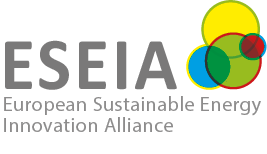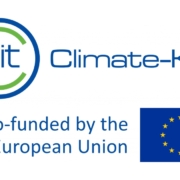ESEIA Director Brigitte Hasewend Appointed as Member of the EIT Climate-KIC Association Governing Board
The ESEIA Director Brigitte Hasewend has recently been appointed as a Member of the EIT Climate-KIC Association Governing Board.
EIT Climate-KIC is a leading climate innovation initiative focused on accelerating the transition to a zero-carbon and resilient society. Supported by the European Institute of Innovation and Technology (EIT), it brings together partners from business, academia, and the public and non-profit sectors to create the innovation that can lead to systemic change.
EIT Climate-KIC Association, comprising EIT Climate-KIC’s Core Partners (also known as Members of Association), actively supports and directs the overall EIT Climate-KIC philosophy and strategy. The Association is a membership organisation without further ownership structure, holding a 10% ownership stake in the KIC Legal Entity (LE). The Association’s Governing Board, appointed by Core Partners, is entrusted with providing intellectual leadership and investigating critical challenges in climate change mitigation and adaptation.
As the ESEIA Director Brigitte Hasewend steps into her new role as a member of the EIT Climate-KIC Association Governing Board, she reflects on climate change and the energy transition, explaining why innovation is vital for systemic transformation.
How do you feel about taking on the new role as a Member of the EIT Climate-KIC Association Governing Board?
I take on this new responsibility with a lot of respect for the achievements of the past GB members under the leadership of Anders Wijkman during 15 years. EIT CKIC Association is a wonderful network of climate research and innovation actors working on systemic innovation to counteract global warming.
In your opinion, what are the most pressing climate challenges that need to be addressed?
As highlighted at COP28 in Dubai, global de-fossilization is the main challenge. Unfortunately, while recognizing the need, the world climate conference has not decided to actively phasing out of fossil energy yet. On a personal scale, I believe we need to make sure nobody is left behind. Those losing their homes because they are flooded, they need to be given a place to live elsewhere, those who lose their jobs need to be retrained to have a new perspective on the green job market, those who cannot afford renewable energy, need to be supported.
We need systemic change to succeed. Are research and innovation the key to making it happen?
Research and innovation are important drivers of transformation towards climate neutrality. We need systemic approaches of innovation ecosystems to make key changes happen. This way of working requires multiple perspectives from different fields and different sectors in different countries.
What are your thoughts on the role of European networks in achieving climate neutrality? And what do you see as the biggest strengths of organisations such as EIT Climate-KIC and ESEIA?
Like other European networks ESEIA has experience assembling various perspectives and creating joint systemic knowledge and approaches. This is the transformative quality and innovation capacity that unites EIT CKIC and ESEIA. I am hoping we will engage in joint activities in the future.
What brings you hope in the fight against climate change?
Young people are the pioneers of change. Sometimes they take radical action by blocking road traffic because they understand the urgency of achieving positive tipping points. Like the prophet (J)ESEIA, I believe that there is always hope as long as we are trying to make things better in the world.
Contact:
ESEIA Director Brigitte Hasewend: brigitte.hasewend@eseia.eu


